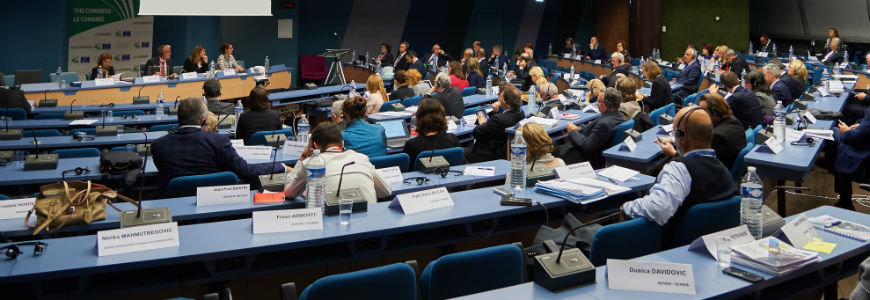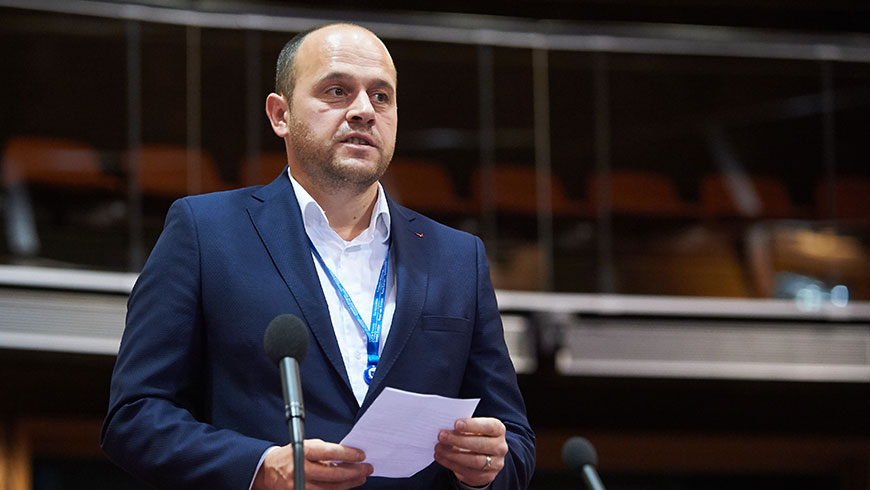"More than a third of Europeans live in a border area and have to face all the challenges that this entails," Congress Vice-President Robert GRUMAN (Romania, EPP) pointed out, at the session on cross-border cooperation held during a Round Table on Local Self-Government, in Minsk, Belarus, on 12 September 2018.
Mr. GRUMAN presented the European legal framework and, in particular, the European Outline Convention on Cross-border Co-operation between Territorial Communities or Authorities. "This convention, which entered into force in 1981, remains the reference treaty in this field. Currently, 38 of the 47 Council of Europe member states have signed and ratified it," he said. The Madrid Convention is supplemented by three Protocols on the right of local and regional authorities to conclude cross-border co-operation agreements, twinning agreements and rules on Euroregional co-operation groups and other cross-border organizations in all Council of Europe member states.
"Over the years, it has become clear that not all obstacles to cross-border cooperation can be overcome by legal instruments," Mr. GRUMAN stressed. "Cross-border, interregional and transnational cooperation also requires a vision, objectives, strategies and concrete actions".
It is in this spirit that the Congress contributed to the creation of the Adriatic Euroregion, which brings together national, regional and local authorities from Member States and non-EU Member States around the Adriatic. It also adopted, in 2009, a report on the state of cross-border cooperation in Europe, and, in 2013, a report on the prospects for effective cross-border cooperation. Today, the Congress continues this work in order to coordinate research in this area - including data collection and indicators development - and to develop capacity building and training programs.
Mr. GRUMAN also stressed the importance of interregional cooperation in an increasingly globalized environment. "This cooperation, characterized by adaptability, flexibility of its mechanisms and lightweight structures, leads regions to discover new, effective and imaginative ways of working together and becomes an important driving force for European integration and territorial cohesion," he concluded.






